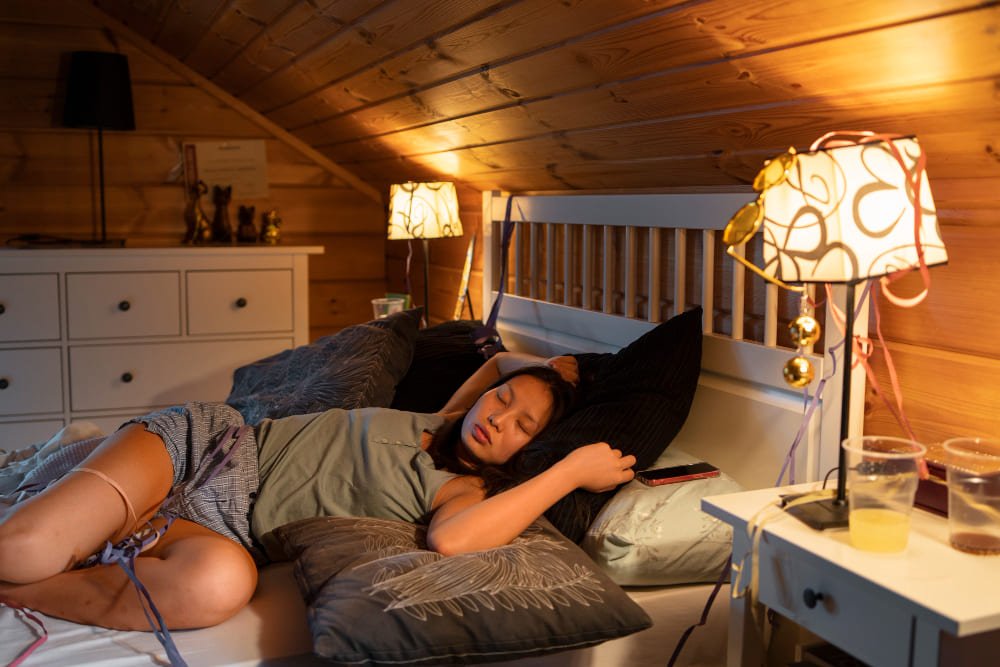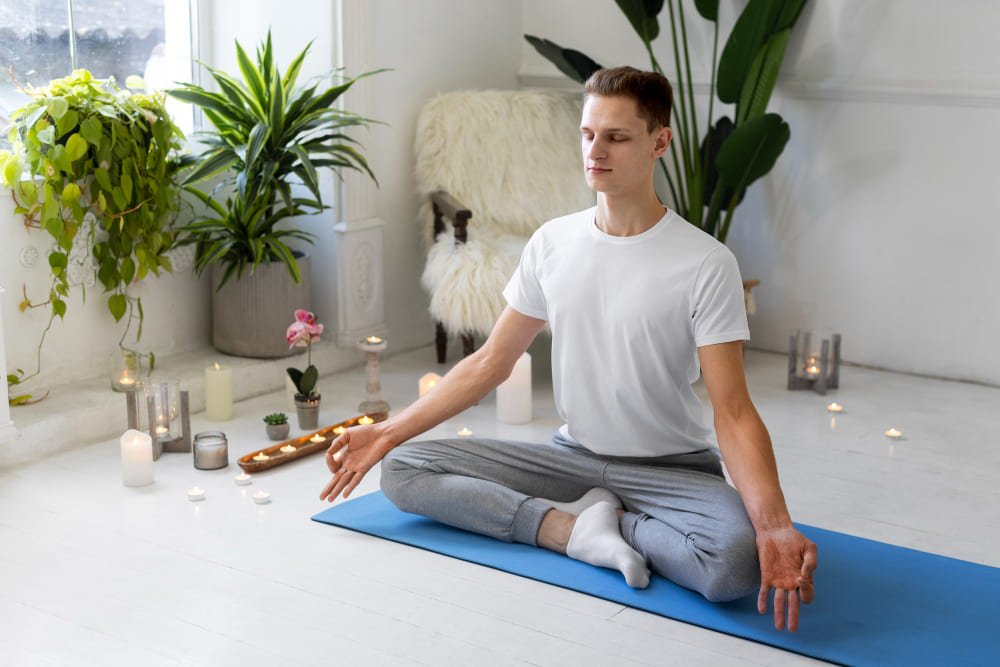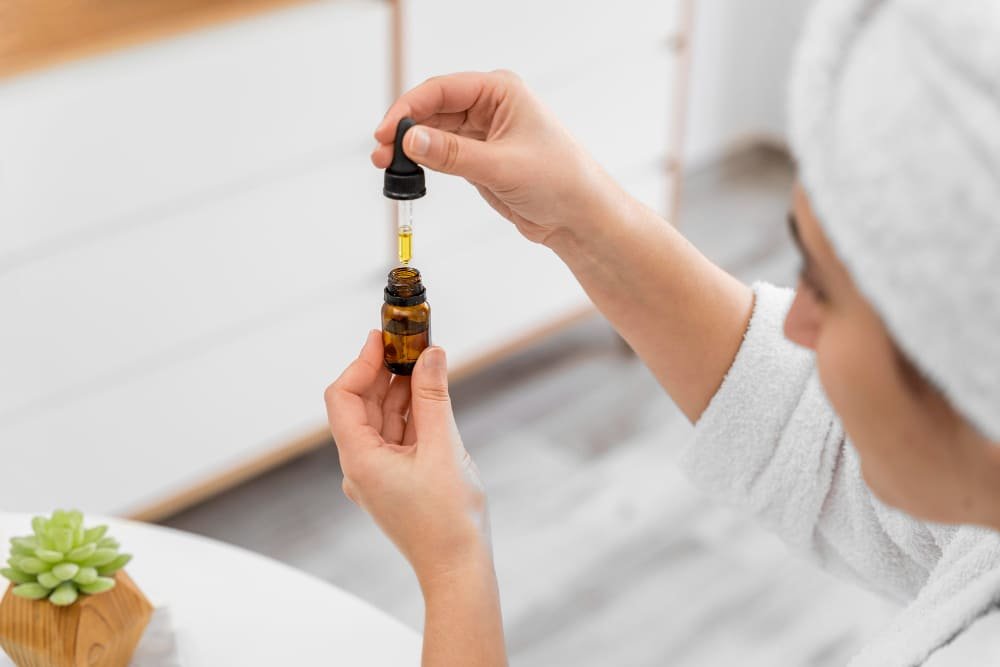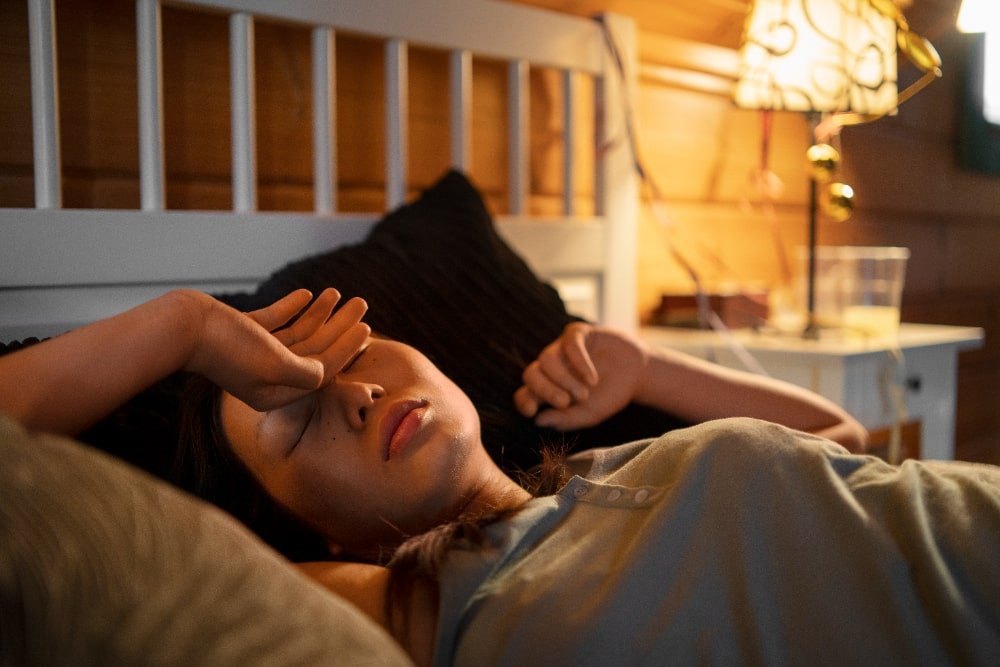A restful night’s sleep is essential for maintaining both physical health and mental well-being. When we don’t get enough sleep, our bodies and minds suffer, and we struggle to function at our best. These days, with life moving so fast, getting a good night’s sleep has become a challenge for a lot of people.
Yes, we all lead busy lives and have stressors that make it difficult to unwind and get the quality sleep that our bodies need. Unfortunately, turning to medications can have harmful side effects and even become addictive. That’s why it’s crucial to explore natural alternatives for better sleep, such as home remedies.
In this comprehensive guide, we’ll discuss some of the most effective home remedies for better sleep. These remedies are easy to implement and can make a significant difference in your sleep quality.
The Importance of Good Sleep
Before we get into the home remedies, it’s essential to understand why a good night’s sleep is crucial for our overall health. Adequate sleep helps our bodies repair and rejuvenate, restoring energy levels and promoting physical and mental well-being.
Here’s why getting enough quality sleep is so great:
- Improved Concentration and Productivity: Poor sleep can impair brain function, leading to reduced concentration, productivity, and cognitive abilities.
- Better Mood: Lack of sleep can increase irritability and mood swings. Getting enough quality sleep can improve overall emotional well-being.
- Stronger Immune System: Sleep plays a crucial role in strengthening our immune system and fighting off illnesses.
- Lowered Risk of Chronic Diseases: Adequate sleep can help prevent chronic diseases such as heart disease, diabetes, and obesity.
- Better Physical Performance: Sleep is essential for muscle repair and growth, leading to improved physical performance.
Home Remedies for Better Sleep
Now that we understand the importance of good sleep let’s explore some natural home remedies to help you get the restful night’s sleep your body needs. These remedies are not only safe and effective but also simple to integrate into your daily routine.
1. Create a Relaxing Sleep Environment
Your bedroom should be peaceful and conducive to sleep. It’s essential to create a relaxing and comfortable sleep environment that is free from distractions. Some tips for creating a sleep-friendly bedroom are:
- Maintain a comfortable room temperature, making sure it is neither too hot nor too cold.
- Block out any light that may interfere with your sleep, such as streetlights.
- Try using a white noise machine or earplugs to block out annoying sounds.
- Keep electronics out of the bedroom, as they can disrupt sleep patterns.
- Consider investing in a high-quality mattress and supportive pillows to ensure proper body alignment and comfort during sleep.


2. Practice Relaxation Techniques
It’s crucial to unwind and relax before bedtime to promote quality sleep. You can try various relaxation techniques such as meditation, deep breathing, or gentle stretching exercises. These practices help reduce stress and calm the mind, making it easier to fall asleep.
Another effective technique is progressive muscle relaxation, where you tense and relax each muscle group in your body, starting from your toes and moving up to your head. This practice helps release tension and promote relaxation throughout the body.


3. Use Aromatherapy
Aromatherapy is a natural way to promote relaxation and better sleep. Essential oils like lavender, chamomile, and valerian have calming properties that can help induce sleep. You can use a diffuser or add a few drops of these oils to your bath before bedtime. Alternatively, you can also try using pillow sprays or room sprays with these essential oils for a soothing scent in your bedroom.


4. Try Natural Sleep Aids
Some natural sleep aids can help promote better sleep without the harmful side effects of medications. Some popular options include melatonin supplements and herbal teas like chamomile, valerian, and passionflower. These herbs have been used for centuries as natural remedies for improving sleep quality.
Before trying any herbal supplement, it’s essential to consult with your doctor and ensure they won’t interact with any medications you may be taking. Also, make sure to follow the recommended dosage instructions on the label.
5. Stick to a Sleep Schedule
Maintaining a consistent sleep schedule is crucial for supporting healthy sleep patterns. To improve your sleep quality, aim to maintain a consistent schedule by going to bed and waking up at the same time every day, even on weekends. This routine helps align your body’s internal clock, making it simpler to fall asleep and wake up at your preferred times.
6. Limit Caffeine and Alcohol Intake
Caffeine and alcohol are known to disrupt our natural sleep cycles if consumed too close to bedtime. It’s best to avoid caffeine at least six hours before bedtime and limit alcohol intake to one drink per day. Instead, try drinking herbal teas or warm milk before bed for a more calming effect.


7. Journal Before Bed
If you often find yourself lying in bed with racing thoughts, journaling before bedtime may help. Writing down your worries and thoughts can help clear your mind and allow you to relax and sleep better. You can also use this time to reflect on the positive aspects of your day, promoting gratitude and fostering a more positive mood.
8. Get Regular Exercise
Regular physical activity can significantly improve sleep quality by reducing stress levels, boosting mood, and promoting relaxation. Aim for at least 30 minutes of moderate exercise each day, but avoid intense workouts close to bedtime as they may disrupt sleep.
Instead, opt for activities like yoga or a brisk walk in the morning or afternoon. If you’re not used to exercising regularly, start with small increments and gradually work your way up.


9. Avoid Heavy Meals Before Bed
Eating a heavy or spicy meal close to bedtime can cause digestive discomfort and interfere with sleep. It’s best to have your last meal at least 2-3 hours before bedtime and opt for light, healthy snacks if you feel hungry.
I saw many people eat a heavy meal at night because it is their last meal of the day and they want to make sure they are full. However, this can lead to disrupted sleep and even weight gain over time.


10. Seek Professional Help
If you’re consistently having trouble sleeping despite trying these home remedies, it’s essential to seek help from a healthcare professional. They can evaluate any underlying medical conditions or other factors that may be causing your insomnia and provide appropriate treatment.
Bottom Line:
Following these natural home remedies can improve your sleep quality and overall well-being. Remember to be patient and consistent with these practices, as it may take some time to see results. A good night’s sleep is essential for a healthier and happier you, so don’t overlook the importance of good rest.
Frequently Asked Questions
Can certain foods affect my sleep?
Yes, some foods can either promote or disrupt sleep. Foods high in caffeine, sugar, and heavy meals before bedtime can interfere with falling asleep and staying asleep. Opting for foods rich in magnesium, like leafy greens and nuts, can help promote better sleep.
Is it okay to take a nap during the day?
Napping can be beneficial if done correctly. A short 20-30-minute nap can provide a burst of energy and improve alertness, but longer naps may disrupt your sleep at night.
How quickly do relaxation techniques start working?
It varies from person to person, but practicing relaxation techniques regularly can have noticeable effects within a few weeks. Be patient and consistent in your practice to see the best results.
What is the recommended time to stop using electronics before bedtime?
It is recommended to stop using electronics at least an hour before bedtime. The blue light emitted from screens can suppress the sleep hormone melatonin, making it difficult to fall asleep.
Can aromatherapy help with anxiety and stress?
Yes, certain essential oils have calming properties that can help reduce anxiety and promote relaxation. Lavender, chamomile, and rose are some popular options for stress-relieving aromatherapy.
Can regular exercise improve sleep quality?
Yes, regular physical activity can significantly improve sleep quality by reducing stress levels and promoting relaxation. Just remember to avoid intense workouts close to bedtime.
When’s the right time to get professional help for your insomnia?
I suggest seeking professional help if you have been experiencing ongoing sleep issues for more than a month and it is affecting your daily life. A healthcare professional can evaluate any underlying causes and provide appropriate treatment.
